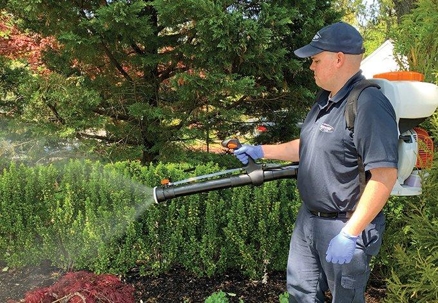Parkway Pest Services has been in the extermination business since 1932, and in that time they've learned a few things about spring pests. Here are some tips from your Long Island Exterminators that will help you stop the cycle of infestation in your home.
Zone 1: Yard
- Drinking water. Pests are searching for food, water, and habitation. If you provide a puddle, they will be lured in. Fill in areas that hold standing water and your lawn will resist pests.
- Breeding water. Standing water is where mosquitoes and other insects leave their eggs.
- Clutter. If you have objects sitting in your yard, insects will nest and breed in them. Clutter also makes insects feel safe. Open spaces are better at keeping pests away.
- Decaying wood or organic material. If you have a woodpile or wood construction materials in your yard, move them 20 feet away from your exterior walls. If you have leaves or twigs on your lawn, rake them up. And always keep you lawn cut. Pests thrive in overgrowth and decay.
Zone 2: Perimeter
- If pests come near your home, don't let them find an unsecured trash can. This is a food source and breeding site.
- Many flying bugs are attracted to certain lights. Consider replacing outside lights with yellow insect-resistant lighting. fewer flying bugs means fewer spiders because spiders find them to be delectable.
- Keep mulch and bushes 2 feet from your walls and keep bushes trimmed. Some bugs use them as a bridge to get onto your home.
Zone 3: Exterior Walls
- When pests crawl on your exterior walls, make it hard for them to get in. Inspect all your window and door screens to be sure that you have no holes. Look closely to see if there are any gaps in the corners as well.
- Inspect doors sweeps and weather stripping for even the tiniest gaps bugs can squeeze through.
- Check your gutter system for any breaks or obstructions. If water runs down your walls, it can cause wood to be moist. This can cause rot. Wood-chewing pests are attracted to soft, rotting wood.
- Consider getting a pest professional to do a treatment on your exterior walls to keep bugs from finding any entry points you missed and to keep them from gaining access to your vulnerable roofline and eaves.
Zone 4: Interior
- If pests get past your exterior defense, don't let them find what they came for. Keep your home free of food sources like toast crumbs, jelly gobs, decaying food, fruit on counters and grime on the side of your stove.
- Protect your pantry foods that come in paper or cardboard. By sealing these in hard plastic containers, you will keep the smells in and pests out.
- Do routine inspections of your attic crawl spaces to make sure no pests are building nests up there.
If you keep your zones protected, you can deal with most pests yourself. But for 100% protection, it is necessary to get a year-round pest plan. This will safeguard you from difficult-to-detect pests like termites. Get your guard up and get protected.

